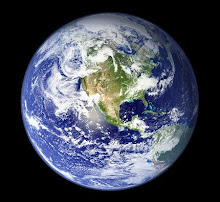S -
"Where is the wise person? Where is the scribe? Where is the
debater of this age? Has not God made foolish the wisdom of the world? For
since, in the wisdom of God, the world through its wisdom did not know God, God
was pleased through the foolishness of preaching to save those who believe. …
For the foolishness of God is wiser than human wisdom, and the weakness of God
is stronger than human strength. … But the foolish things of the world God chose
in order that he might put to shame the wise, and the weak things of the world
God chose in order that he might put to shame the strong, and the insignificant
of the world, and the despised, God chose, the things that are not, in order
that he might abolish the things that are, so that all flesh may not boast
before God. (1 Corinthians 1:20, 21, 25, 27-29 LEB)"
O - To
what elements of life on earth does this dynamic of wise and foolish
apply? Is it only to religious or
spiritual things? Or is it about how we
are called to follow Jesus and live life each day on planet earth? Well, how did Jesus live? He lived this dynamic each day and each
circumstance. No distinction was made
between here and hereafter when it came to wise and foolish. "No
domestic slave is able to serve two masters, for either he will hate the one
and love the other, or he will be devoted to one and will despise the other.
You are not able to serve God and money.” Now the Pharisees, who were lovers of
money, heard all these things, and they ridiculed him. And he said to them,
“You are the ones who justify themselves in the sight of men, but God knows
your hearts! For what is considered exalted among men is an abomination in the
sight of God. (Luke 16:13-15 LEB)"
A - The
"wisdom" of earthly stewardship inspired OT Israel to not believe God
about resting the land every seventh year.
They didn't believe he'd really take care of them. It seemed completely
foolish for farmers to intentionally not plant their crops and
"trust" that the harvest of year six would be sufficient to carry
them to the harvest of year eight. Then,
when they planted in the seventh year God did not curse their crops. They harvested in year seven, had more and
could even claim good stewardship and God's blessing. The problem was they didn't believe God about
earth. They chose the wisdom of the
world rather than the foolishness of God. In their “wisdom” of “good
stewardship" they chose to not know God. The result was catastrophic for
themselves and their children. The
question of Jesus to Nicodemus remains his question to me and to all who will
follow: "If I tell you earthly things and you do not believe, how will
you believe if I tell you heavenly things? (John 3:12 LEB)" I will choose
Jesus and his foolish way of thinking, loving, living and speaking … unto the
life that is really life.
P - Lord
who made heaven and earth,
Today I want to be little and
not big; to be foolish according to the world (secular and religious) that the
wisdom of heaven would find me again and again.
I admit I am prone to start at human wisdom and miss you and your ways
on earth in the process. I am asking for
help, not self-help in finding this narrow door which leads to real life here
and hereafter. Thank you for living this
way and sending us all that same way you were sent. Jesus, I trust you and will believe you about
earth.
Steve



